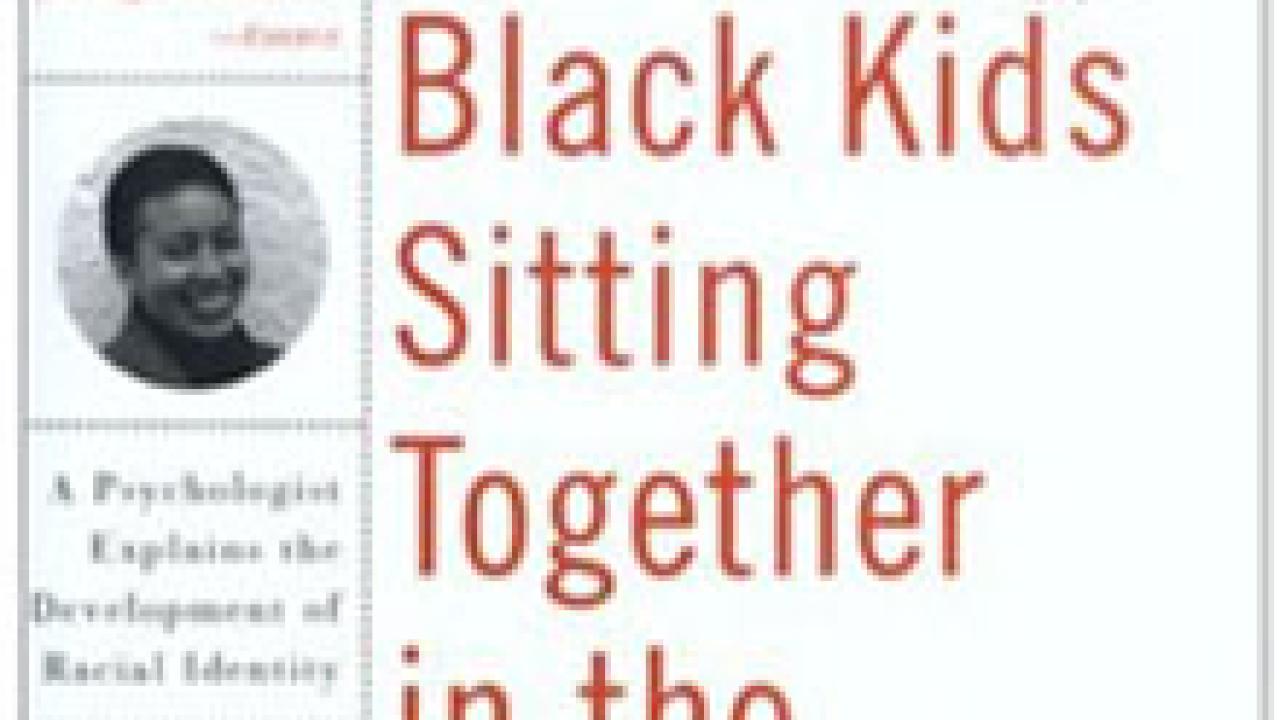“Eddie says my skin is brown because I drink too much chocolate milk,” said one black preschooler. “Is that true?”
That is the kind of question psychologist Beverly Daniel Tatum confronted as both a mother and an educator (her son actually asked this question). Years later, Tatum, now president of Spelman College in Georgia, tells this story and others in Why Are All the Black Kids Sitting Together in the Cafeteria? And Other Conversations About Race — the book chosen for the 2010-11 Campus Community Book Project.
In her 2003 work, Tatum addresses how blacks can build racial identities free of negative stereotypes. Her book also looks at how whites can stand up against racial injustice.
The work’s selection as the campus book project reflects on the university’s own commitment to diversity and access to education, organizers said. Above all, the book project is an opportunity for a candid campus discussion about an often challenging subject.
“Tatum’s book looks at identity development from the experiences of underrepresented minority groups and how that development translates as a factor of how these students achieve in the educational system,” said Mikael Villalobos, administrator of Diversity Education and chair of the Campus Community Book Project.
Educational barriers
The search for this year’s book began in mid-July with a selection committee that reviewed nominated books based on the chosen theme, Villalobos said.
“The theme is quality education and barriers to higher education — a timely topic because we were preparing for what we knew would be a challenging year due to budget cuts,” he said.
Villalobos said the theme was partly chosen to explore the impact of the current economic situation facing students, as well as cross-cultural perspectives.
“We wanted to explore the role of the UC system in issues of educational equity and access, and at the same time, be able to explore achievement gaps as they pertain to traditionally underrepresented minority groups, and how the UC can be at the center of engagement in finding ways to address the disparity in achievements,” he said.
‘People pretend not to see race’
From Haiti to Thailand, previous book project selections, such as Tracy Kidder’s Mountains Beyond Mountains and Eric Weiner’s The Geography of Bliss, have taken readers far beyond America’s borders. Tatum’s book, on the other hand, brings the issue much closer to home for those involved.
“When I was in college, the message I got was to not think of a person’s race, but to think of a person as another human being,” said Mikaela Huntzinger, coordinator at the Teaching Resources Center and book project committee member.
“The unintended side effect of that message is that people pretend to not see race. We are doing an enormous disservice to minorities if we act as if race does not exist,” she added.
Organizers said that even in a multicultural community like that of UC Davis, talking about race can be an uncomfortable subject.
Huntzinger said she hopes Tatum’s book serves as “an entrée into much more open discussions about race.”
“She makes the reader feel safe and included, despite the fact that the book is full of challenging ideas. She talks a lot about white privilege and she challenges those who identify themselves as white to think about how it is not easy for a student in a different situation,” Huntzinger said.
Racial positioning
Karma Waltonen, a lecturer in the University Writing Program and committee member, appreciated Tatum’s straightforward approach.
“Students won’t have to wade through a lot of theory,” she explained.
The most striking issue Tatum confronts, Waltonen said, is the way students segregate themselves.
“I’ve had some international students who only talk to international students from their home country. It would be great to start to think how we can open up those groups,” she said.
Sponsored by the Office of Campus Community Relations, the book project is a series of events throughout the fall that culminate in the author’s appearance and a wide-ranging discussion at the Mondavi Center.
A selection committee will soon convene to consider the 2011-12 Campus Community Book Project selection. Those interested in participating may contact Mikael Villalobos at mbvillalobos@ucdavis.edu. More information on the book project.
Nicole Nguyen is a student intern for
Dateline.
Media Resources
Clifton B. Parker, Dateline, (530) 752-1932, cparker@ucdavis.edu
